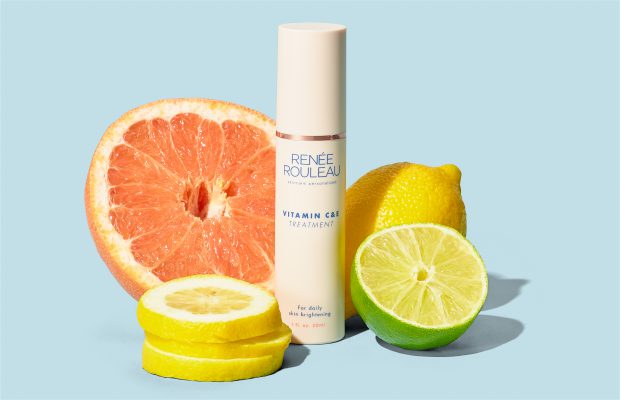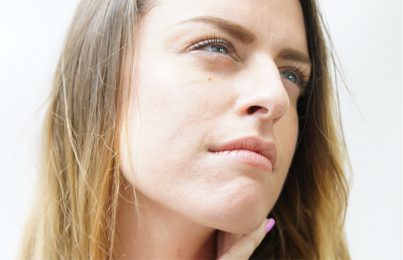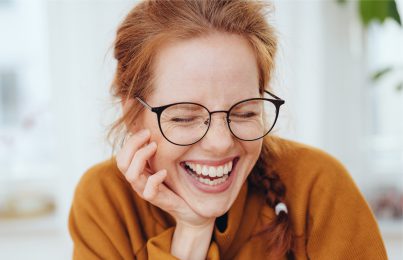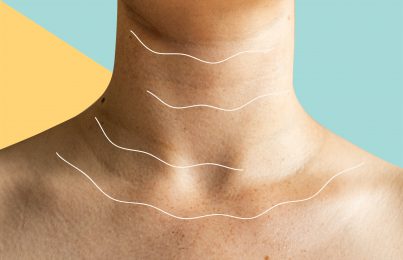Updated 7/13/20. Now more than ever, people are incredibly aware of the concept of preventative aging. Many of my younger clients tell me they want to put in the work now to avoid wrinkles and brown spots down the road. I’m always happy to hear this because it’s easier (and less expensive!) to prevent the signs of aging in the first place than it is to reverse them later on. But what age should someone start using anti-aging products? And which products are best for this?
- Sunscreen Starting at 6 Months
- Physical Exfoliants (Gentle Facial Scrubs) Starting at Age 10
- Acid Exfoliants Starting at Age 16
- Antioxidant Serum Starting at Age 18
- Retinol or Prescription Retinoid (Used For Anti-Aging) Starting at Age 28
- Eye Cream Starting at Age 21
- Choosing Anti-Aging Products for Your Skin Type
Products to prevent premature skin aging can be used starting as early as eighteen. Of course, not all anti-aging products are equal, so let me explain what products are best to use at certain ages.
Sunscreen Starting at 6 Months
According to the journal of Plastic and Reconstructive Surgery, a study concluded that sunscreen, when compared to the preventative effects of powerhouse OTC ingredients such as wrinkle-fighting antioxidants, skin-plumping hyaluronic acid, and skin lightening-hydroquinone, is the most biologically active ingredient in skincare products. So what does that mean exactly? It means that sunscreen, more so than any other skincare product sold over-the-counter, is THE most effective product for preventing visible wrinkles and premature skin aging.
Physical Exfoliants (Gentle Facial Scrubs) Starting at Age 10
Some pre-teens can start to get whiteheads, blackheads, and closed comedones. Using a daily facial cleanser with gentle exfoliating beads or a simple scrub a few times a week is very beneficial for keeping the skin clear and bump-free. Exfoliants also help with anti-aging in that they encourage healthy cellular turnover.
Acid Exfoliants Starting at Age 16
Like physical exfoliants, products using AHAs (glycolic, malic and lactic acid) and BHAs (salicylic acid) all help to stimulate cell renewal, which helps keep the skin healthy. Exfoliating acids can also help control breakouts, fade discoloration from sun damage and acne scarring, and keep the skin smooth. If someone is having a lot of trouble with acne and clogged pores, they can start using exfoliating acids a littler earlier than sixteen. Have questions about exfoliating acids? Here’s everything you need to know.
Antioxidant Serum Starting at Age 18
This is a great time to start protecting skin cells from environmental damage. A gentle, no-sting vitamin C serum is extremely effective when used underneath daily sunscreen. It will help neutralize free radicals that break down collagen, damage cells, and cause discoloration. Duke University Medical Center researchers determined that using a lotion or serum with both vitamins C and E under sunscreen actually provides four times the protection of sunscreen alone. Vitamin C plus sunscreen is a powerful anti-aging combination that you really should be using daily!
Retinol or Prescription Retinoid (Used For Anti-Aging) Starting at Age 28
Using a topical retinol or retinoid product a few times a week is one of the most effective ways to make the skin look smoother and younger. Whether you use a prescription retinoid or over-the-counter retinol, it will help resurface your skin’s texture, reduce fine lines and wrinkles, minimize large pores, and fade discoloration.
Other than sunscreen, I believe vitamin A (the active ingredient in retinol and retinoids) is truly the best biologically active ingredient because it’s backed by so many years of scientific proof. After all, every dermatologist on the planet endorses it. For those in their late twenties, I suggest starting with a non-prescription retinol product since the cells are still active at this young age. Once you get into your late thirties, you can consider switching to a prescription retinoid if your skin needs more. The one exception for starting a prescription retinoid earlier is if you struggle with comedonal acne. Some dermatologists will prescribe a retinoid because it helps increase the rate of skin cell turnover, which helps prevent clogged pores.
Consult with a skincare professional to determine the right plan for your unique skin type. Learn more about how to incorporate retinol and retinoids into your skincare routine.
Eye Cream Starting at Age 21
Since the eye area is the first area to show signs of aging, keeping it hydrated and nourished is very important. I recommend my younger clients use a lightweight eye cream with a creamy/gel consistency. Once they are in their late twenties, I suggest they start using a more moisturizing, active eye cream.
Some people question eye creams and wonder if they really work. I believe they do and here’s why.
Choosing Anti-Aging Products for Your Skin Type
It’s important to note that you must choose all anti-aging products appropriate for your skin type. Many cosmetic companies assume those who want anti-aging care must have dry skin. But many young people who still have oil and breakouts are also looking to prevent the first signs of aging to preserve their youthful appearance. This can be done with the right balance of ingredients.
Another thing to know is that many anti-aging skincare products (such as vitamin A and peptides) have active ingredients in them that are designed to increase the metabolism of the cells. This excellent for those in their thirties and beyond since the natural metabolism of our cells slows down as we age. However, these ingredients may be too active for the face in younger skins, especially those prone to breakouts since this type of skin already has an active metabolism. Over-stimulation may increase breakouts for some people, so always consult with an esthetician or other skincare professional to determine what’s best for your type of skin.
P.S. Consider yourself lucky if you have these three genetic facial features that will guarantee you’ll look younger longer.
Celebrity Esthetician & Skincare Expert
As an esthetician trained in cosmetic chemistry, Renée Rouleau has spent 30 years researching skin, educating her audience, and building an award-winning line of products. Her hands-on experience as an esthetician and trusted skin care expert has created a real-world solution — products that are formulated for nine different types of skin so your face will get exactly what it needs to look and feel its best. Trusted by celebrities, editors, bloggers, and skincare obsessives around the globe, her vast real-world knowledge and constant research are why Marie Claire calls her “the most passionate skin practitioner we know.”



